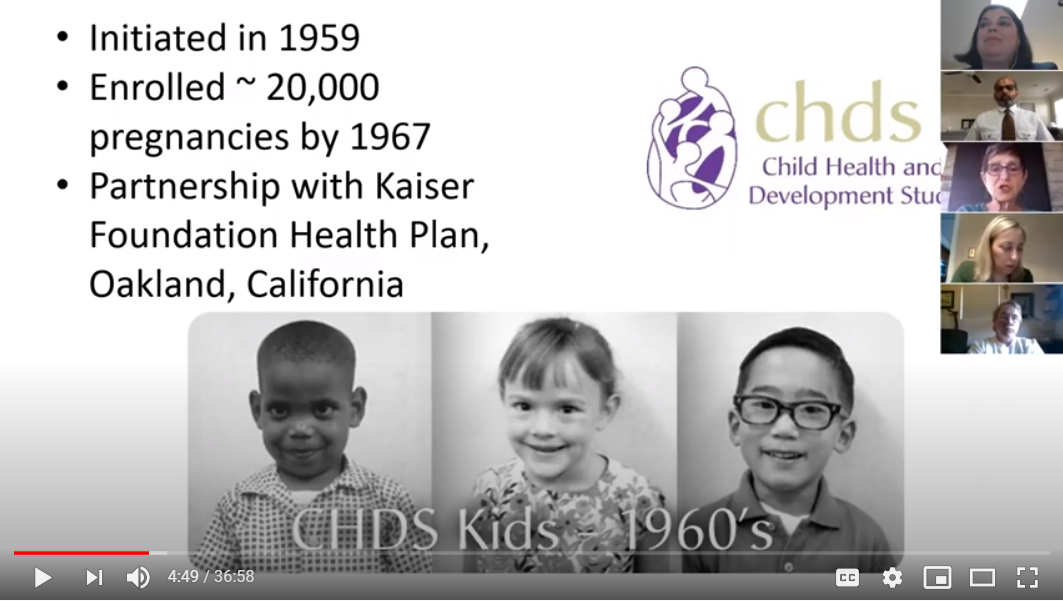Implementing Decades-Long Research to Prevent Multi-Generational Obesity
Highlights

In March 2020, PHI's Child Health and Development Studies released the first human study to link blood levels of certain PFASs in pregnant women to their granddaughters’ obesity risk—adding to a growing body of evidence highlighting the harmful impacts of certain environmental exposures to the health of future generations.
639 women were studied, finding a link between PFAS exposure and obesity
50 years of researching links between chemical exposures during pregnancy and health
20K pregnancies enrolled in the CHDS research study
A study by PHI’s Child Health and Development Studies (CHDS) program suggests that health conditions could be passed down due to chemicals that your grandmother was exposed to.
The groundbreaking March 2020 study by CHDS found that, among women, if your grandmother had high blood levels of one chemical in a family of compounds called PFAS during pregnancy, you would be more likely to be obese than a woman whose grandmother had low blood levels of this PFAS. The association was consistent regardless of whether a women’s mother or grandmother was obese, and was strongest for women whose grandmothers had both high levels of the PFAS chemical and low cholesterol levels. The CHDS analysis is the first human study to link blood levels of PFAS in pregnant women with the risk of obesity in their granddaughters.
“The grandchildren, who are age 20 now, and their mothers, who are age 50 to 60 now, are a part of this obesity epidemic. Pregnancy appears to be … a critical window of exposure for at least three generations of humans.”
—Barbara A. Cohn, Ph.D., Director of PHI’s Child Health and Development Studies
Per- and polyfluoroalkyl substances (called PFAS) are a class of chemicals that can alter or disrupt the body’s natural hormones, with potential links to serious health problems. PFAS are found in nonstick pans, stain resistant fabrics and carpeting, food packaging and many other common consumer products. Introduced into commerce in the 1940s, PFAS are called “forever chemicals” because of their ability to persist and accumulate in the environment and in the body.
Since the 1960s, the CHDS researchers evaluated pregnant women enrolled in the program by documenting and storing their pregnancy and early postpartum blood samples. In the early 2000s, the weight, height and waist measurements of 213 sets of grandmothers, mothers and granddaughters (639 women) were used to determine their whole body obesity and abdominal obesity. Obesity is associated with infertility, pregnancy complications, poor infant health and long-term risk of diabetes, heart disease and cancer among other health problems for young women.
The CHDS study will help inform medical advice on avoiding PFAS during pregnancy and may influence policy debates around reducing obesity, mitigating the impacts of PFAS already in the environment, and replacing the chemicals with safer materials.
Learn more
To learn more about the study see the press release and read news coverage in MedPageToday and Healio.
Work With Us
You change the world. We do the rest. Explore fiscal sponsorship at PHI.
Support Us
Together, we can accelerate our response to public health’s most critical issues.
Find Employment
Begin your career at the Public Health Institute.

